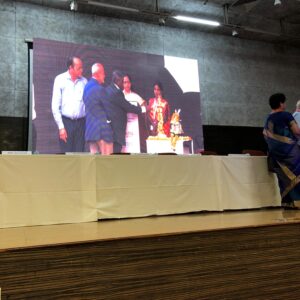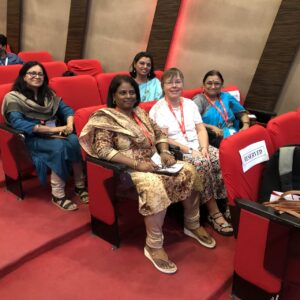Summertime is always a good time to renew and refresh – including open educational resources like Research Data MANTRA, https://mantra.ed.ac.uk, a free online course “for those who manage digital data as part of their research project.”
MANTRA’s lead editor Bob Sanders, in Library Research Support, has been busy in between his summer holidays getting all the topical units fit for new postgrads and early career researchers.
In particular each of the units’ links, images, videos, activities and further reading sections have been renewed, following a rolling revamp of most of the sections’ written content over the last couple of years. Two of the units, ‘Files, formats and transformation,’ and ‘Documentation, metadata and citation’ have been retired and replaced by a new ‘Preparing your data for archiving’ section, covering why and how to publish your data in a trustworthy repository.
We are also aware that the data handling tutorials, separate from the other units, have become more or less outdated and while we decide how to address this, users should be aware of the last update date on each set of those downloadable materials.
Of course we practice what we preach in terms of archiving, and so previous units that have been revamped have been archived on the Zenodo site, (https://doi.org/10.5281/zenodo.1035218), along with the retired ‘DIY RDM Training Kit for Librarians’ (https://doi.org/10.5281/zenodo.6532049).
I’d like to take this opportunity to thank Bob for acting as lead editor for MANTRA in recent years and for stewarding it through so many new developments in the field of research data management, and to wish him well in his new role as SCADR Training Manager in the School of GeoSciences.
For the complete set of RDM training by the Research Data Service, including live sessions, see https://www.ed.ac.uk/is/data-training.
Robin Rice
Data Librarian and Head, Research Data Support

 One of the ambitions for the EOR conference held in March, 2022, when we first started planning it was to make it as open and accessible as possible. To achieve this we made the whole event hybrid so that plenary talks, posters, and workshops were all accessible on the day to both in person and remote attendees. While this generally worked very well for both remote and in-person attendees, we also wanted to make it available to people who couldn’t attend on the day – so we recorded everything, and the recordings of the talks and posters can now be openly accessed through our Edinburgh Open Research journal at
One of the ambitions for the EOR conference held in March, 2022, when we first started planning it was to make it as open and accessible as possible. To achieve this we made the whole event hybrid so that plenary talks, posters, and workshops were all accessible on the day to both in person and remote attendees. While this generally worked very well for both remote and in-person attendees, we also wanted to make it available to people who couldn’t attend on the day – so we recorded everything, and the recordings of the talks and posters can now be openly accessed through our Edinburgh Open Research journal at 
 One talk that piqued my interest involved a survey of librarians in Gujarat about RDM and their capacity to deliver new types of service, by Dr. Bhakti Gala. As the Indian LIS (library and information science) curriculum was apparently seen to not be delivering RDM training to any great extent yet, the researcher had asked how the librarians had acquired knowledge of RDM. She said that about half the librarians who had pursued self-training had learned from the free, online
One talk that piqued my interest involved a survey of librarians in Gujarat about RDM and their capacity to deliver new types of service, by Dr. Bhakti Gala. As the Indian LIS (library and information science) curriculum was apparently seen to not be delivering RDM training to any great extent yet, the researcher had asked how the librarians had acquired knowledge of RDM. She said that about half the librarians who had pursued self-training had learned from the free, online  Simon has worked in Research Data Management since 2015, when he joined the
Simon has worked in Research Data Management since 2015, when he joined the